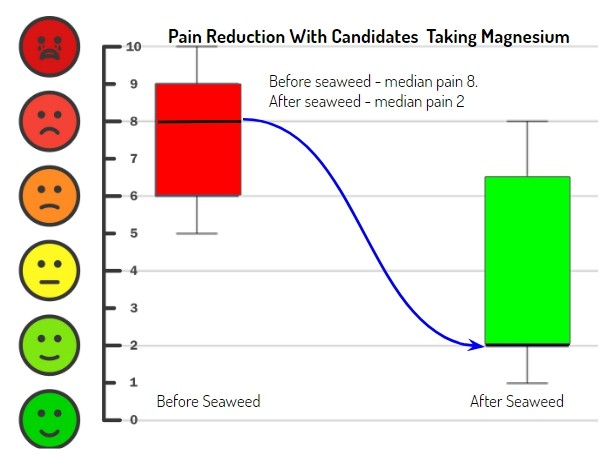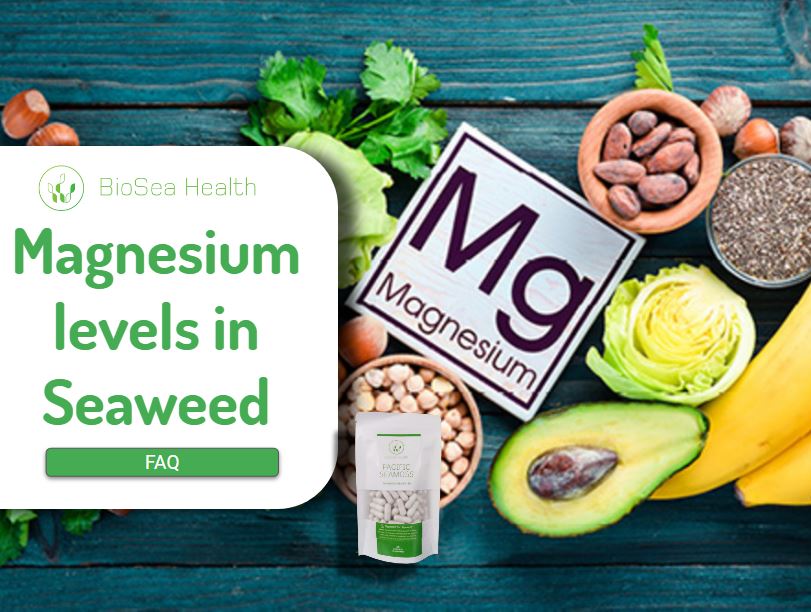Magnesium in seaweed is implicated for general pain relief as well as dysmenorrhoea.
Women with dysmenorrhoea have a lower serum magnesium. (Chhabra 2017) There was also a Cochrane Review on the role of magnesium. (Parazzini et al. 2017) Skibola in 2004, and Jane Teas both used kelp which has a higher magnesium content than Kappaphycus – the species Biosea Health uses.
However, there is evidence of COX pathway inhibition from extracts. (Makkar & Chakraborty 2017; Zakaria et al. 2018)
Magnesium is not the whole reason why women find reduction of pain from eating Pacific Seamoss for dysmenorrhea. The fibre contributes to gut health and a change in microbiome, but even this does not explain the whole range of improvements women get.
In a pilot trial on dysmenorrhea, we asked about supplements that trial participants were taking. We had 8 women who were taking a dedicated magnesium supplement every day, that is excluding multi-vitamins. Seven provided pre and post seaweed pain data. A quick paired-samples t-test is significant, which suggests that seaweed activity is over and above the impact of magnesium.

References
Chhabra, S 2017, Primary dysmenorrhea and serum magnesium in young girls A pilot study: Nessa J gynecology.
Makkar, F & Chakraborty, K 2017, Antidiabetic and anti-inflammatory potential of sulphated polygalactans from red seaweeds Kappaphycus alvarezii and Gracilaria opuntia, International Journal of Food Properties, vol. 20, no. 6, pp. 1326-37.
Parazzini, F, Di Martino, M & Pellegrino, P 2017, Magnesium in the gynecological practice: a literature review, Magnesium research, vol. 30, no. 1, pp. 1-7.
Zakaria, A, Jais, MR & Ishak, R 2018, Analgesic properties of nigella sativa and eucheuma cottonii extracts Journal of natural science, biology, and medicine, vol. 9, no. 1, p. 23.

